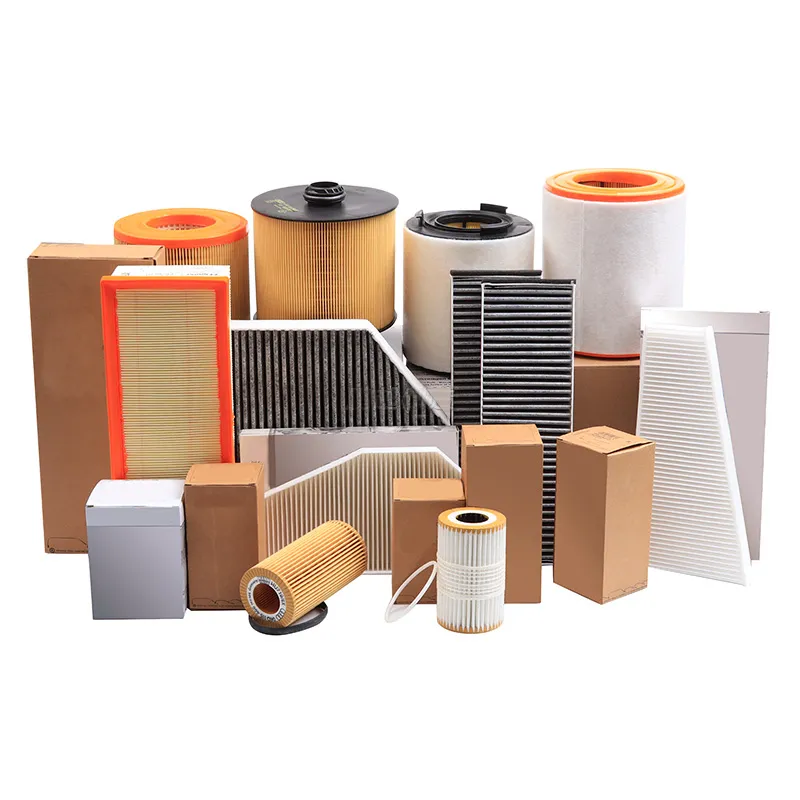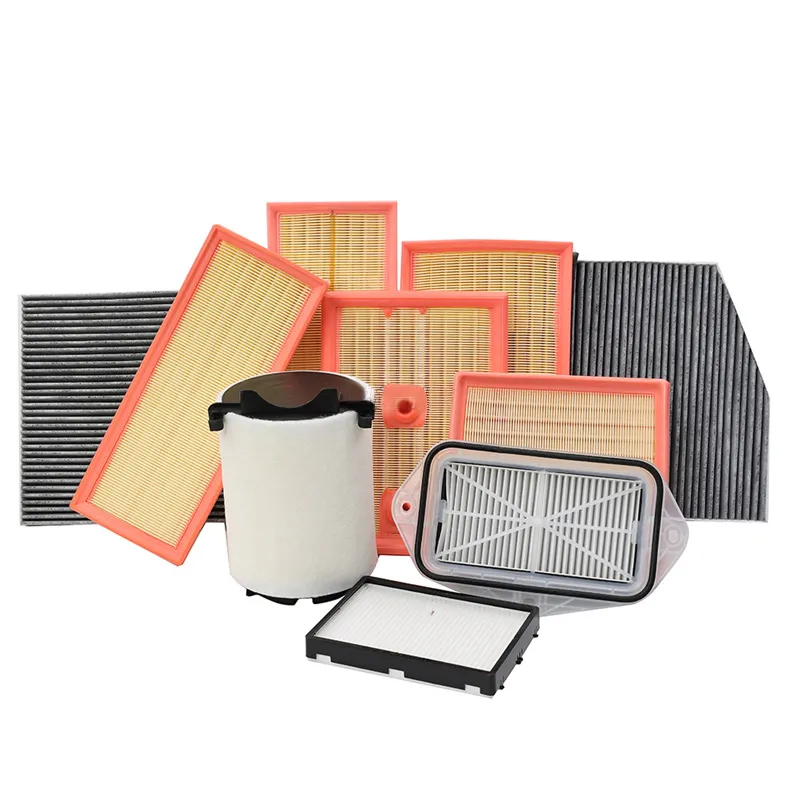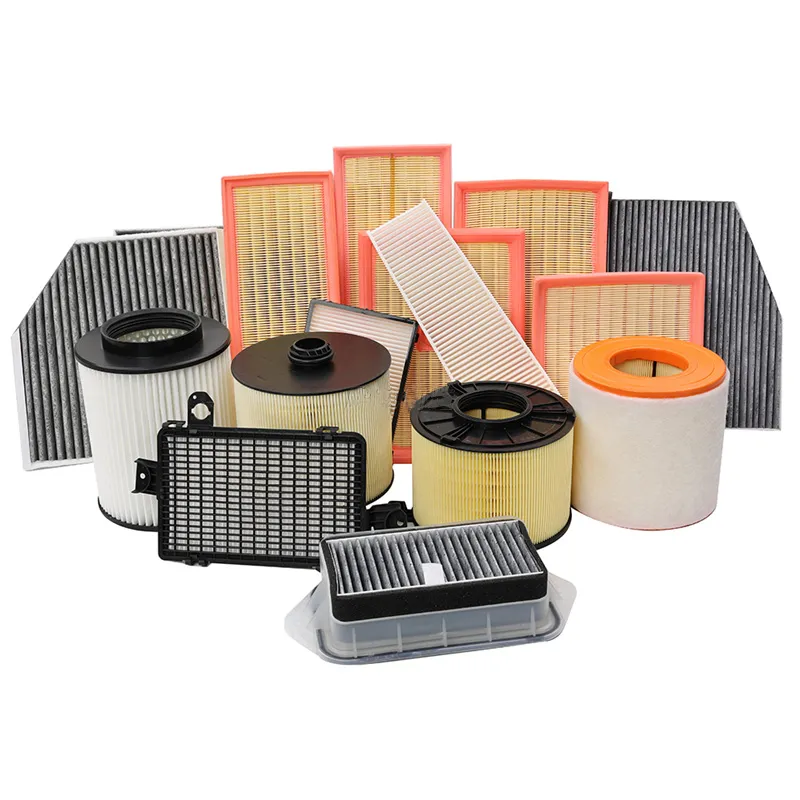
As the global automotive industry rapidly evolves, the gasoline filter screen becomes pivotal in ensuring optimal fuel delivery and engine longevity. Integrating advanced materials science, precision manufacturing, and evolving regulations, modern automotive filters—including the auto oil filter—continue to push the boundaries of efficiency and durability. In this comprehensive guide, we explore the transformative trends, technical parameters, and industry-leading practices shaping gasoline filter screen technology, and showcase our flagship solution: Automotive Engine.

1. Industry Trends in Gasoline Filter Screens & Automotive Filters
- Market Growth: The automotive filter market is projected to reach USD 22.5 billion by 2028, with increasing demand for advanced filtration due to stricter emission norms (Markets&Markets, 2023).
- Regulatory Compliance: ISO 16949 and ISO 4548 standards are increasingly adopted for filter manufacturing, ensuring product consistency and durability.
- Materials Evolution: Adoption of stainless steel mesh, woven wire, and specialty alloys for better corrosion resistance and mechanical strength.
- Sustainability: Manufacturers pursue recyclable materials and extend service intervals, reducing environmental impact.
- Smart Filtration: Integration of IoT sensors enables real-time filter condition monitoring in connected vehicles, maximizing operational safety.

2. Gasoline Filter Screen: Technical Data & Parameter Analysis
The gasoline filter screen is a precision component—integrated within automotive filtration systems—to prevent contaminants (rust, dust, debris) from accessing the fuel injection system or engine. Only by adhering to strict materials and mesh size requirements can the filter screen ensure sustained engine performance and efficiency.
| Parameter | Typical Value/Range | Industry Standard | Description |
|---|---|---|---|
| Material Type | 304/316L Stainless Steel, Nylon, Bronze | ISO 9001, ISO/TS 16949 | Corrosion-resistant, high strength, suitable for hydrocarbons |
| Mesh Aperture | 20 – 200 Micron | ISO 4548-12 | Prevents micro-particle ingress into combustion chamber |
| Flow Rate | 2 – 12 L/min | ANSI/SAE J1986 | Engine-specific, maintains stable fuel supply |
| Operating Temperature | -40°C to 150°C | ASTM D4169 | Ensures performance in wide ambient environments |
| Service Life | 30,000 – 50,000 km | OE standards | Depends on fuel type and maintenance intervals |
| Chemical Compatibility | Gasoline, E10/E20 Ethanol | SAE J2260 | No degradation with advanced fuels |
ISO and SAE standards serve as benchmarks for both design and testing of gasoline filter screen, ensuring robust, repeatable performance across varied automotive environments.
3. Manufacturing Process Overview: Automotive Engine Gasoline Filter Screen
- Material Selection: Choose certified raw materials (304/316L stainless steel wire mesh or high-precision nylon) strictly adhering to ISO 16949.
- Mesh Weaving: Utilize automated weaving machinery for micron-level mesh formation.
- CNC Cutting: Employ CNC-controlled cutting for dimensional accuracy, minimizing burrs and ensuring conformity to tolerance.
- Screen Stamping & Forming: Use progressive dies to shape screens for integration into filter housing.
- Edge Welding/Bonding: Laser welding or ultrasonic bonding delivers zero-leakage filter seams.
- Quality Inspection: Implement multi-stage testing (flow, burst pressure, X-ray inspection) per ANSI and ISO standards.
- Packing & Shipment: Anti-static and moisture-resistant packaging under controlled conditions.

- Material: 304/316L Stainless Steel ensures resistance to high-pressure, high-temp, and corrosive environments.
- Fabrication: Advanced CNC and automated techniques for micron-precision, burr-free mesh.
- Inspection: 100% checked for dimension, burst resistance, and permeability; certifications include ISO 16949, ISO 9001.
- Service Life: Designed for 30,000 – 50,000 km with low maintenance and high contamination-holding capacity.
- Industries: Petrochemical, metallurgy, municipal water treatment, transportation, power generation.

4. Technical Comparison: Gasoline Filter Screen in Leading Automotive Filters
| Filter Brand | Material Grade | Mesh Size (micron) | Burst Pressure (MPa) | Service Life (km) | Corrosion Resistance |
|---|---|---|---|---|---|
| JYFilter Automotive Engine | 316L Stainless Steel | 40 | 10+ | 50,000 | Excellent |
| Parker | 304 Stainless Steel | 60 | 8 | 45,000 | Very good |
| Bosch | Nylon Media | 80 | 7 | 40,000 | Good |
| Mahle | Woven Mesh | 100 | 7 | 35,000 | Good |
As shown above, the Automotive Engine gasoline filter screen demonstrates best-in-class service life and superior corrosion resistance, underscoring its value proposition for demanding applications in petrochemical, heavy industry, and transit.
5. Customization Capabilities and Flexible Solutions
- Screen Shape & Size: Flat, cylindrical, custom 3D geometry; diameters from 5mm to 250mm+.
- Mesh Density: 20–400 mesh, tailored for fine to ultra-fine filtration.
- Frame & Jointing: Laser-welded, riveted, adhesive-bonded as required by application and standard.
- Compatibility: Media compatible with gasoline, diesel, E10/E20 ethanol blends.
- Branding Support: OEM/ODM adaptation, barcoding, and product traceability.
- Testing: Custom testing (burst, cyclic pressure, flow, salt spray) on request.
- Compliance: All screens confirm with ISO 9001/16949, ANSI, SAE standards.
 Tailored filter screens for complex automotive and industrial needs
Tailored filter screens for complex automotive and industrial needs
6. Application Scenarios & Case Studies
- Upgraded to gasoline filter screen with enhanced micron mesh.
- Reduced unplanned maintenance by 37% over 18 months.
- Reported fuel economy improvement of 5.6% (fleet-wide average).
- Compliant with ISO 4548-12, survived harsh sandstorm and saline exposures.
- Service life: over 44,000 km (field audited).
- Deployed tailored auto oil filter & gasoline filter screen for dual-fuel bus fleet (B100 + gasoline).
- Achieved 99.92% particulate retention at 30 micron, extending engine injector replacement cycles by 41%.
- ISO/TS 16949-certified supply chain audit passed.
- Specification: 316L stainless mesh, 25 micron, 150mm diameter.
- Reduced contamination-related warranty events by 83% over 2 years.
- Passed 96hr salt spray (ASTM B117) and -40°C freezing tests.
7. Automotive Engine: Technical Specifications & Visual Analytics
| Item | Specification |
|---|---|
| Application | Automotive Engine, Powertrain Filtration |
| Mesh Size | 20 – 400 Mesh (20 to 200 Micron aperture) |
| Material | 304L / 316L Stainless Steel, industrial nylon |
| Flow Rate | Up to 12 L/min |
| Operating Pressure | ≤13 MPa |
| Operating Temp. | -40°C ~ +150°C |
| Service Life | ≥50,000 km |
| Certifications | ISO/TS 16949, ISO 9001, ANSI/SAE, CE |
Analytics demonstrate a clear relationship between mesh aperture and allowable flow rate. Our distribution predominantly uses 316L for critical applications, with options for high-flow or fine-filtration as process demands.
8. Certifications, Authority & Industry Standing
- Certified to ISO/TS 16949, ISO 9001, CE-marked – aligns with global OEM and Tier-1 supplier expectations.
- Audited supply chain, multi-year partnerships with automotive OEMs (clients include: Geely, Shaanxi Auto, Chery, Doosan).
- After-market support: Technical consultation, custom design, and field troubleshooting by experienced filtration engineers (avg. experience 12+ years).
- Product Testing: Third-party validation per ISO 4548-12, ASTM D4169, SAE J2260. Full reports available on request.
- Reference Installations: Over 10 million gasoline filter screen units supplied worldwide (2023 data).
9. Service Protocols, Delivery, and Customer Support
- Lead Time: 5–12 working days for standard filters; 12–30 days for custom screens.
- Warranty: 18–24 months or 50,000 km (whichever comes first).
- Support: 24/7 technical hotline; English, German, Chinese support.
- Logistics: Global air/sea shipment, with anti-static, anti-moisture packaging.
- Returns: Flexible RMA/after-sales process for any non-conforming units (ISO complaint handling).
10. FAQ: Professional FAQ on Gasoline Filter Screen Technology
11. Why Choose Our Gasoline Filter Screen Solutions?
- Unmatched Lifespan: Field-tested to outperform standard market filters by 12–35% in service intervals and contamination resistance.
- Precision Engineering: CNC, laser welding, and continuous ISO-certified quality management.
- Global Trust: Suppliers to major OEMs across Europe, Middle East & Asia.
- Eco & Safety Focus: Recyclable metal mesh, no microplastic emissions, full material traceability.
12. Related Technologies, Further Reading & Academic References
-
The Hidden Benefits of Proper Cabin Filter Use in Your VehicleNewsJul.31,2025
-
Replacing Your Gasoline Filter at HomeNewsJul.31,2025
-
How Often Should You Replace Your Car Air Cabin Filter?NewsJul.31,2025
-
How Much Does a Car Air Filter Cost?NewsJul.31,2025
-
Car Fuel Filter Price GuideNewsJul.31,2025
-
Best Car Air Purifiers for Allergy SufferersNewsJul.31,2025
-
Vehicle Performance with Premium Car Filter SolutionsNewsJul.02,2025
Related Products




